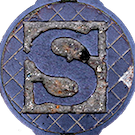Interdisciplinary Models
| Interdisciplinary Models | |
|---|---|
| Description | How do we define minimal information models tuned for synthesis that can interoperate across various disciplines? |
| Related Topics | Interoperability |
| Discord Channel | #interdisciplinary-models |
| Facilitator | Wayne Lutters |
| Members | Paul Itoi, Elianna DeSota, Leo Ware, Konrad Hinsen, James Howison, Wayne Lutters, Peter Murray-Rust |
What
How do we define minimal information models tuned for synthesis that can interoperate across various disciplines?
Concrete problem expressed by Peter-Murray Rust here: https://discord.com/channels/1029514961782849607/1040214388554084372/1040299259930611833: "The idea of Hypothesis testing is common in some disciplines, unknown in others. For example chemical synthesis or materials science is "can we make X?" and many sciences are exploratory - what can we see with a new telescope, plants in Antarctica, etc. You have to design your project but I suspect Hypothesis doesn't come into it."
And to a certain extent, the issue of representing/discussing the discourse of computational research (e.g., model parameters), discussed by Konrad Hinsen here: https://discord.com/channels/1029514961782849607/1038988750677606432/1039576903838859326
This connects also with Peter-Murray Rust's work on Semantic Climate (semantifying the IPCC report).
- see discussion here: https://discord.com/channels/1029514961782849607/1040057721044598788/1040060670907002973
- and here: https://discord.com/channels/1029514961782849607/1033091746139230238/1040226423346040853
And also connects to emerging discussions around interoperability and Surfacing/managing/resolving disagreements in ontologies/terms/federation
Initial discussion
Matthew, Peter, Wayne, James, Ellie, Leo
Projects discussed:
- Scraping literature in geosciences to spatially map out contributions http://globe.umbc.edu/ - Materials Genome Initiative mentioned: infrastructure well-supported but still siloed - OPTIMADE: common API format between existing materials databases
"grassroot tech assemblage can work at scale. "Shoddy" now works."
"need to flourish long enough to been seen by other disciplines"
"So: how do we work in a way that others can learn from in future" -- without being discouraged from starting new things
Reaching plateau of open data --- metrics on who is using and what using for
Similar challenges in enterprise: what data do we have within an org, and who is using it? https://data.world/ vs more public initiatives like https://coleridgeinitiative.org/
Discovering and forming communities of practice around datasets -- how does one person's use leave traces that others can discover? How do we align the challenges across time (ie my experience when I was grappling with a specific column in a dataset, aligned with someone doing just that a year later).
Academic model of competition rubs against open science --- both in sunk time and possessiveness of data
Open notebook science
Domain differences between contributing individual data points vs entire datasets
Identifying key questions:
- Which solutions have worked in other domains?
- What are the differences between (ontological, socio-political, economical) domains that lend themselves to different solutions?
- Extending the concept of "discipline" to e.g., cataloguing human infrastructure (cities, roads etc), "Discipline as a search across a reasonably well defined search space"
- Alignment of primitives --- example of plants in expressed different locales and the effect on local climate Possible outcomes of this group
- Compendium of practices in different fields
- Collecting ideas from other attendees from disciplines within the workshop in a survey
